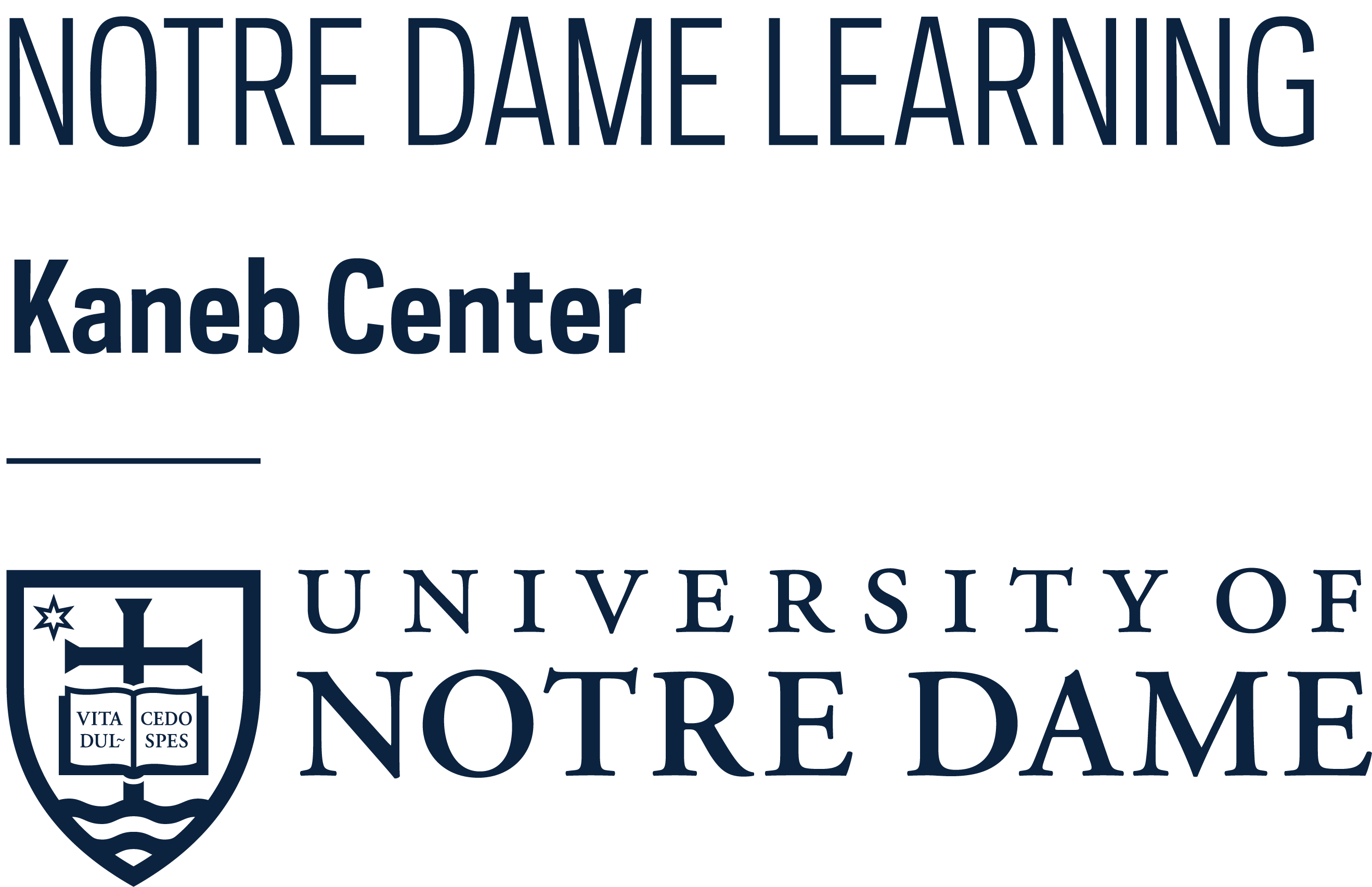For years, the Kaneb Center for Teaching and Learning at Notre Dame has had — in addition to a full time staff — cohorts of graduate student (and some postdoctoral) “associates,” who support and assist with the development of programming. These “PGAs” (Postdoctoral and Graduate Associates) are selected to serve at the beginning of each year, and often continue to serve throughout their career at Notre Dame. I became a PGA two and a half years ago, at the outset of my fourth year in grad school, and am still serving in the role as a postdoctoral fellow. Here, I’ll detail some of the most important things I’ll take away from my experience as a PGA. Because we’re actively seeking applicants for this role in the upcoming academic year, I’ll put some more information about the role itself, and how you can apply, below.
Lessons Learned, Experience Gained
I’ve learned a lot during my time as a Kaneb associate, but I’ll try to distill and share some of the most valuable here:
- Teaching, and learning, and learnable skills. The myth persists in higher education that teaching is inexplicable and learning is magic, but my time at Kaneb has convinced me otherwise. I, myself, have made massive gains in my skills as a teacher, just by paying attention to a bit of the current literatures on learning and pedagogy, and by listening to the experience-based insights of my colleagues. If I wasn’t fully committed to having a “growth mindset” before taking the position, I certainly am now after just a couple years in it!
- There are just a few key principles and best practices one had to master to become an excellent teacher. It’s not easy, of course, but it is relatively simple. Listing the principles and practices can sound a bit trite, but things like “engage students through active learning” and “make sure assignments and assessments are aligned with meaningful learning goals” truly represent almost everything I’ve learned about teaching throughout my time at Kaneb. Because teaching is a craft, of course, internalizing and exemplifying these things is difficult and hard won through experience, but it’s amazing to me how far just a few basic principles and practices have taken me.
- Sometimes teaching how to teach is the best way to articulate your own teaching philosophy. I’m a philosopher, so I’m allowing myself one very meta point. But here’s what I’m talking about. In leading Kaneb workshops, some of which I took over from other PGAs or from the Kaneb repertoire, I’ve learned a lot about myself and my own teaching commitments. For instance: I’ve long believed lecturing to be one of the best ways to teach, and that belief has showed up in my approach to teaching throughout grad school. In teaching workshops on “active learning” and how to “flip classrooms” (pedagogical buzzwords I had to familiarize myself with prior to teaching such workshops), I acquired a much broader picture, and now understand that my original belief was based largely on what worked for me as an undergrad, and that, according to the literatures on this topic, I was a huge outlier! I still lecture, and still think there are effective ways of doing it, but my exposure to more teaching theory — and to the experiences I’ve encountered as a PGA — have helped me work through this previously knee-jerk commitment, and come to a more nuanced position.
- Teaching is best pursued in community. As I’ve detailed elsewhere [link], during my time at the Kaneb Center I started a community for first time teachers, and I can’t recommend this highly enough. The community I’ve enjoyed as an associate, as well as those that I’ve joined or created in my role, have been absolutely key in supporting my success and enthusiasm in the classroom.
I could, of course, go on and on, but I’ll stop here for now and just make a pitch directly: if you’re thinking about getting involved in efforts to promote good pedagogy on a college campus, at Notre Dame or elsewhere, I highly recommend it. My experience had been invaluable to me, and it’s something I will carry into every sphere of my personal and professional life.
More About the Role, and How to Apply
Most basically, PGAs are around to promote and support ongoing programming. We help plan and lead Notre Dame’s yearly TA Orientation, teach and plan existing pedagogy workshops and series, and help develop, design, and implement new programs and workshops. For instance, this year I taught Kaneb’s “Foundations of Teaching” in the fall, am planning a workshop on using case studies in the classroom, and have developed and led a weekly Teacher’s Learning Community, where first time teachers come together each week to troubleshoot and learn the craft together.
If you’re interested in this position, Kaneb is now accepting applications for this role; you can email krudenga@nd.edu for more information.
